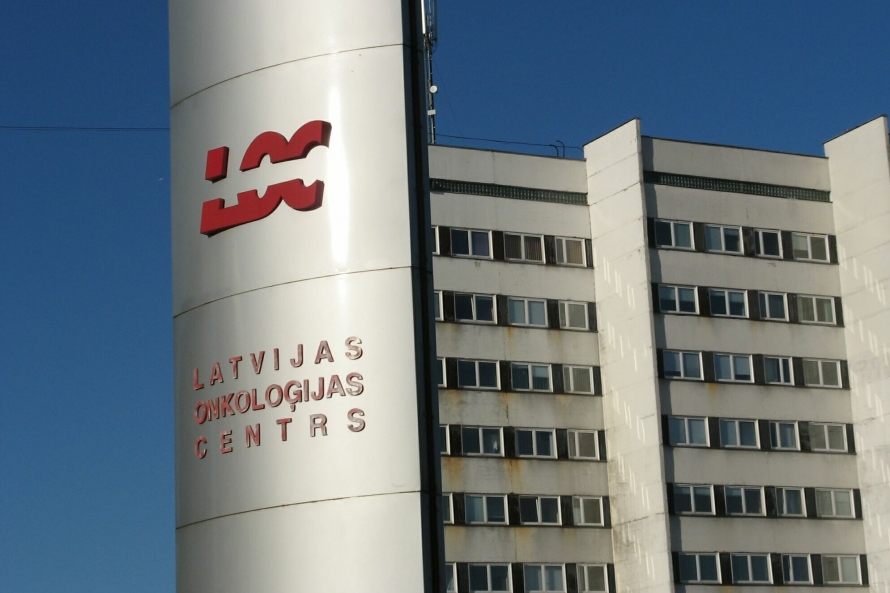As Latvia prepares to mark 2015 as Anti-Cancer Year, not a single state-sponsored public program or plan has been developed yet, though oncologists suggest that a good starting point would be the promotion of medical examinations to screen for the disease.
On Tuesday the oncologists met with newly-installed Health Minister Guntis Belēvičs, with whom they discussed possible plans for the coming year.
Oncology Association representative Inese Ozoliņa told LETA that Latvia’s professional cancer fighters are satisfied for now with Belēvičs’ promises that Anti-Cancer Year shall not remain only ‘on paper’, but will actually promote an effective program of action.
On Monday Jānis Eglītis, president of Latvia’s Oncology Association, told Latvian Independent News (LNT) program 900 sekundes that cancer patients are bearing the brunt of this failure to address a serious problem in the state health care system. He explained that the percentage of cancers discovered in patients in Latvia that have already progressed to Stages 3 or 4 has remained unchanged at about 40% since the collapse of the Soviet Union.
“Out of 11,000 patients in advanced stages of cancer, we lose more than half of them – about 6000,” he said.
Eglītis explained that the problem has to do both with rural residents having poor access to proper medical specialists and that a pre-screening program introduced five years ago has run out of steam and is no longer effective. Moreover, state-sponsored programs for treating the disease in hospital are disastrously underfunded, as a rule undervaluing the actual costs of treatments and medical services necessary to fight it.
The Oncology Association on Friday will host a conference dedicated to the science of anti-cancer efforts, which have been ongoing since the founding of the Anti-Cancer Society 80 years ago, which was formed into the current association 60 years ago.
“In this pioneering field of science we can truly be proud of our accomplishments in research and treatment,” said Eglītis. Indeed, in August Latvia's Organic Synthesis Institute claimed a bittersweet win for Latvian science and the fight against cancer with the approval for clinical use this year of a drug compound named Belinostat by the US Food and Drug Association.
However, Latvia is now in last-place in Europe with regard to the use of innovative drugs per oncology patient. Most operation rooms in Riga where delicate and technically advanced surgeries take place are in fact in a very poor state of repair, compared to many in-patient rural clinics, where facilities have been refurbished nicely but serious operations cannot be scheduled.
Cancerous diseases are the second leading cause of death in Latvia, according to the Center for Disease Prevention and Control. Compared to the rest of the world, Latvia has much higher rates of late-stage malignant tumors and therefore also deaths due to cancer.
Meanwhile, Health Ministry spokesman Oskars Šneiders told LETA Wednesday that the state has spent €29.6m on prevention and treatment of cancer, as well as €18.3m for reimbursements of prescription medicine costs related thereto.
For instance, LSM followed up on an operation at the state Oncology Center on Tuesday, which seemed to suggest that the problem truly has to do with insufficient funding. For a very complicated surgery to remove an esophageal tumor from a relatively young man in his early forties, the official state price sheet indicates that the hospital should receive only €600 for the job, with assisting nurses allocated a mere €2 bonus for their efforts.
It seems that according to the currently approved rates for treating cancer, every single oncology patient only causes losses to the hospital. This means that patients aren’t the only ones terminally scared of contracting cancer – Latvia’s state budget fears it too.




























